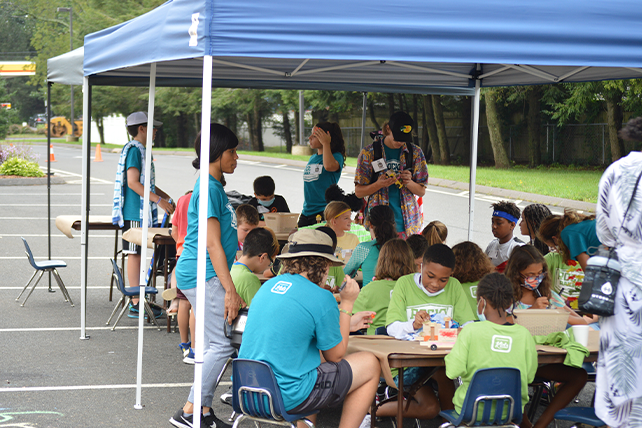(RNS) — At St. Ann’s Episcopal Church in the Chicago suburb of Woodstock, Illinois, the once weekly Christian education program is now monthly, and known as “Second Sunday Sunday School.”
At Crossroads Community Cathedral, an Assemblies of God church in East Hartford, Connecticut, “children’s church” continues to thrive each weekend, and “The Little Drummer Dude” production was presented in early December, but Christian education for young people is described as “one of our greatest weaknesses.”
At Mattie Richland Baptist Church in Pineview, Georgia, the adults have been back in Sunday school and the kids led a Black history presentation, but the bus that picks up children for their education program will remain idle until January.
Sunday school, adult forums and other Christian formation classes, already threatened by declines in worship attendance, have been further challenged since COVID-19 shuttered churches and sent their services online. A study by the Hartford Institute for Religion Research said more than half were disrupted in some way. Other research shows religious education for adults has bounced back more than for younger church members.
“For some, it continued without any real major disruptions, and for others, it basically collapsed,” said Scott Thumma, the institute’s director, summing up its 2022 pandemic-related research during an October event at Yale Divinity School. “And the easiest way to make it collapse was to keep religious education for children and youth online. If you kept it online, you probably don’t have a religious education program now.”
The Rev. Scott Zaucha, pastor of St. Ann’s in Woodstock, a mostly white congregation with about 50 attending on Sundays, said its Sunday school had ceased to exist before the pandemic because of its aging congregation. He wondered how to begin it again and learned that online Christian education was not the answer because it seemed like “another thing to try to keep up with” when regular schooling was online.
Zaucha found that meeting one Sunday a month in person was the best route, realizing that even if families choose St. Ann’s as their congregational home, they may not be weekly attenders.
“When you have only a few families with kids at your church, and you have two kids on this Sunday and six kids on that Sunday,” he said, “they’re all sort of spread out. But if you say, ‘Hey, families, we’re going to have Sunday school once a month.’ Then it lets them know when is the best Sunday for them to come if they’re only going to choose one.”
In Orthodox churches, research shows that the parishes that never ceased holding in-person religious education classes for their children and teenagers fared better than those that halted the Sunday school lessons, with some even increasing the number of attendees. The combination of attending worship as well as Sunday school and seeing other youth on a regular basis became crucial for their participation.
“For them, it has become even more valuable through the pandemic for those parishes, which kept young people together,” said Alexei Krindatch, national coordinator of the National Census of Orthodox Christian Churches, in an interview conducted at the Religious Research Association conference in November. “It was an excuse to get together.”
At Crossroads, a multicultural congregation with about 1,500 gathering each weekend, online campus pastor Luke Monahan has tried numerous options to keep adults and kids engaged since the start of the pandemic. In 2020 there were daily adult devotional videos and two a week for kids. Online options appealed more to the adults than to the kids — his own youngster, at age 6, “shut the little laptop and ran away,” he said. An online kids’ church video he had developed gained little traction.

